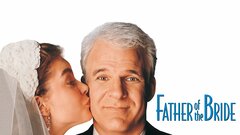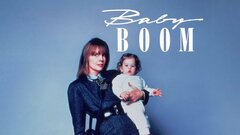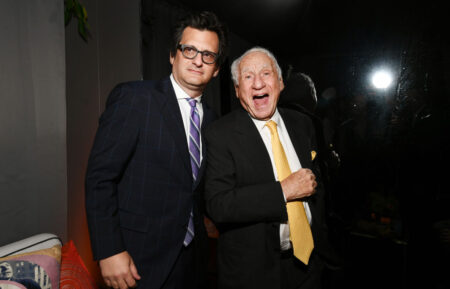A pioneer who first broke with convention by co-scripting "Private Benjamin" (1980), a rare comedy centered on female characters, Nancy Meyers spent nearly two decades sharing writing and producing credit on successful big screen comedies before breaking out on her own as one of Hollywood's top women filmmakers. During her rise, Meyers' collaborated with then-husband Charles Shyer on comedy hits including "Baby Boom" (1987) and "Father of the Bride" (1991), but following her directorial debut with "The Parent Trap" (1998), she established a unique voice with hugely popular romantic comedies aimed at oft-overlooked middle-aged moviegoers. In films "What Women Want" (2000), "Something's Got to Give" (2003) and "It's Complicated" (2009), Meyers painted a new portrait of the modern, romantic comedy heroine as a mature, self-sufficient, class act who is perfectly capable of "having it all."
Meyers was born Dec. 8, 1949, and raised outside Philadelphia, PA in the suburb of Drexel Hill. She earned a journalism degree from George Washington University and headed to Los Angeles in 1972, where she broke into show business with a job on the game show "The Price is Right" (CBS, 1972- ). Meanwhile, she wrote television scripts on the side and tried to get them in front of producers, eventually landing her first job as a story editor.
While working at a story editing job at the film division of Motown Records in the late 1970s, Meyers met writer Charles Shyer, who already had a number of film and TV credits to his name. The pair hit it off and began to collaborate on script ideas, eventually selling a screenplay about a spoiled brat (Goldie Hawn) who enlists in the Army after the sudden death of her husband and eventually toughens up into an independent woman, "Private Benjamin" (1980). An unexpected hit comedy that broke with convention by featuring female lead characters,
"Private Benjamin" scored at the box office and earned Meyers, who also served as producer, an Academy Award nomination for Original Screenplay and an Award from the Writer's Guild.
Off-screen, Meyers and Shyer became romantically involved and Meyers gave birth to a daughter while the couple's hit film was adapted into a short-lived sitcom. Their next feature film script, "Irreconcilable Differences" (1984), starred Shelley Long and Ryan O'Neal as a divorced couple whose acrimonious and self-absorbed behavior so torments their precocious daughter (Drew Barrymore) that she files for emancipation. With Meyers executive producing and Shyer directing, their collaboration on the moderate box office success earned Golden Globe nominations for Barrymore and Long. Meyers was one of several writers credited with the forgotten Goldie Hawn comedy, "Protocol" (1984), but she and Shyer scored again as a writing-directing and co-producing team with "Baby Boom" (1987). Tackling a timely topic, Diane Keaton starred as an executive who inherits an infant and is torn between career and home life. Unfortunately, the relatable, multi-faceted challenge was reduced to slapstick situations by Meyers and Shyer, now themselves the parents of two children.
But while critics pointed out the film's fluffy shortcomings, audiences turned out in significant enough droves to warrant another short-lived sitcom (NBC, 1988-89).
Meyers, a devoted fan of classic era screwball comedies, dipped into her love of Hollywood's past for her and Shyer's next outing, a remake of Vincente Minnelli's 1950 comedy, "Father of the Bride" (1991). The pre-wedding chaos comedy was anchored by Steve Martin and Diane Keaton as anxious parents of a daughter on the verge of marriage after a whirlwind courtship. Again, Shyer directed, and the couple co-wrote and co-produced (among other names credited) the holiday released hit. Their next two collaborations, however, were not as successful. The comedy mystery "Once Upon a Crime" (1992), co-written by the pair and five others, sank without a trace. Likewise, the Julia Roberts-Nick Nolte romance "I Love Trouble" (1994), produced and written by Meyers, written and directed by Shyer, vanished quickly from screens. In 1995, Meyers and Shyer wed, formed The Meyers/Shyer Company, and released "Father of the Bride Part II" (1995), another box office hit that thawed critic's hearts nearly as much as the first. The duo signed a development deal with Walt Disney Pictures the following year.
But while the Meyers-Shyer duo - friends often referred to them as the "Shmeyers" - had achieved firm studio footing and were proven hitmakers, Meyers was itching to tinker with their formula and direct one of the couple's screenplays herself. She made her debut with a remake of the classic 1961 Disney family film, "The Parent Trap" (1998), and hit it out of the park with a modern take on the twin tale that critics enjoyed and audiences lapped up to the tune of over $90 million at the box office. Off-screen, however, the Lindsay Lohan-Jamie Lee Curtis film unexpectedly caused a rift in the Meyers-Shyer relationship that led to their split, both romantically and professionally. But while Meyers' emotional wounds needed time to heal, the newly minted director's career immediately began to flourish.
Meyers kicked off the incredibly successful new solo phase of her career directing "What Women Want" (2000), starring Mel Gibson as the handsome chauvinist suddenly gifted with the power to read women's minds, and Helen Hunt as the fellow ad exec he tries to woo with his new sensitivity and insight. The formulaic romantic comedy was a runaway hit that brought in well over $350 million dollars Equally as important, it established the conventions of the new "Nancy Meyers" genre of romantic comedy - one that focused more on character over situation, and featured an independent professional woman pursued by a cad who has his comeuppance. Meyers took further ownership of her next project; writing, directing and producing the crowd-pleasing, if slightly uneven, "Something's Gotta Give" (2003), a romantic comedy for the over-50 set featuring terrifically charismatic (and Golden Globe- nominated) turns from Jack Nicholson and Diane Keaton.
The $250-plus million box office seller defied studio notions that the audience for a post-menopausal "chick flick" was too small to address, and accompanying the film's success was Meyers' new status as the dominant filmmaker of the emerging genre. "Something's Gotta Give" also strongly showcased Meyers' oft-used fantasy-boosting elements of lush, expensive home interiors and mature, secure, female leads who are the pursued, rather than the pursuers. For "The Holiday" (2006), writer-director-producer Meyers told the story of two women looking to escape from romance altogether and swap international homes, only to fall into unexpected trysts. Tapping into the talents of appealing 30-something stars Cameron Diaz, Kate Winslet, Jude Law and Jack Black brought in over $200 million in ticket sales, even as critics found little originality in the enjoyably escapist romance.
In 2009, the 60-year-old filmmaker rolled out "It's Complicated," another romantic holiday release that fueled the second-act fantasies of women everywhere. This time, Meryl Streep headlined (in an atypical performance that reduced her to excessive adolescent giggling) as a successful entrepreneur suddenly pursued not only by her playboy ex-husband (Alec Baldwin), but also by the architect (Steve Martin) working on her well-appointed home. The middle-aged suburban fantasy successfully brought together all Meyers' signature hallmarks, and she earned a Golden Globe nomination for Best Screenplay and for Best Film. Meyers moved away from her signature romantic comedies with her next project, the workplace comedy "The Intern" (2015), starring Robert De Niro as a bored widower who transforms the life of a business executive (Anne Hathaway) balancing the demands of work and family.


































































